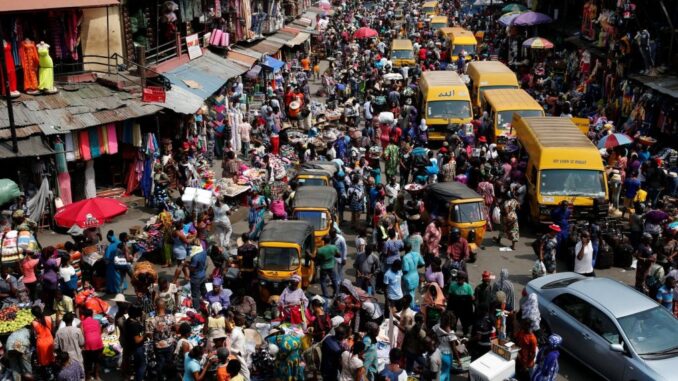
The Nigerian economy has slipped into a second recession in five years, culminating months of battering by the coronavirus pandemic.
The National Bureau of Statistics National Bureau of Statistics announced Saturday the nation’s GDP declined 3.62 per cent in the third quarter of 2020, better than its 6.10 per cent contraction in the second quarter.
It is the nation’s second recession since 2016, and the worst in almost four decades.
But what really is recession and how does it affect you?
What is a recession?
Recession occurs when a country’s economy declines for six months at a stretch, or two consecutive quarters. If recession lasts long enough, it turns into depression.

Normally, the economy of a country grows, measured as the gross domestic product, GDP. It is the aggregate value of all goods and services in the country within a specific time – usually a year. Nigeria’s GDP in the third quarter of 2020 stood at N39 trillion, the largest in Africa.
When an economy grows, citizens do well and get richer, even if marginally, as they have jobs, good salaries, and improved quality of life. Companies and investors also make profits.
The government benefits by collecting more taxes and having more money to spend on public services, benefits and workers’ wages.
When things don’t go as they should and the economy fails to grow for two successive quarters, recession sets in. It is a serious problem for any country and until now the last time this happened in Nigeria was in 2015/2016.
That may be caused by debt crisis, severe shortage of money, or shock like the coronavirus pandemic. This year’s recession is not a unique Nigerian problem. The COVID-19 crisis has guaranteed all countries have suffered economically.
How could a recession affect you?
Slowed economic growth or a decline affects a country and citizens badly. It translates to shortage of money, lack and loss of jobs, and could see companies cutting salaries.
Revenue shortage can stall public services and projects as budget financing by the government becomes a problem. This could affect any sector from health to education to security.
It is a period of austerity and rise in poverty and inequality.
What can the government do?
Countries generally approach economic problems like recession using monetary and fiscal measures.
The central bank uses monetary policies to control the quantity and supply of money in the economy with implications for growth, inflation, consumption and liquidity.
The CBN can modify the interest rate, buy or sell government bonds, regulate foreign exchange rates, and change the amount of money banks should maintain as reserves.
If economic growth is slow or very poor (during recession), the CBN can expand economic activities by lowering interest rates and promoting spending.
Lower interest rates mean businesses and individuals can take loans on convenient terms to expand productive activities, hire and pay more, and spend more on consumer goods.
During times of boom, the bank can alternatively deploy contractionary monetary measures to tame inflation that may arise from increased spending.
The first scenario describes Nigeria’s situation now, which explains why the CBN has cut policy rate twice this year already.
For fiscal policy, coordinated by the finance ministry, the government can apply spending and tax policies to influence economic conditions. It can also be expansionary or contractionary.
If the economy in recession, the government may lower taxes to increase aggregate demand and fuel growth.
The logic is that when people pay less taxes, they have more money to spend and invest. That spending leads firms to hire and pay more, and boosts economic activities.
Rather than lowering taxes to achieve that goal, the government may seek economic expansion through increased spending, through the budget.
To do this, the government may borrow or fall back on savings. That’s where reserves like excess crude account and the sovereign wealth fund should help. Those accounts don’t seem to be doing well though.
The danger is that this approach can cause inflation and may be difficult to reverse as citizens prefer low taxes.
The opposite — contractionary — is for the government to reduce public spending and cut public-sector pay or jobs to tame inflation.
What Nigeria needs now is the former — more spending and less taxes with an eye on inflation. But the government has chosen to impose an array of taxes and charges on citizens, from higher VAT to fuel and electricity prices hike at a time of economic difficulties.


Be the first to comment